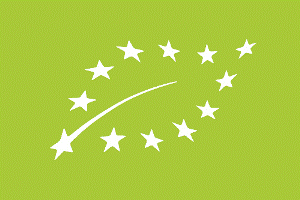New EU organic logo for pre-packaged poultry products

The new label is for all pre-packaged organic food products produced by EU member states. The logo becomes obligatory starting from 1 July 2012.
The logo will not replace other regional, national, or private logos, but will appear alongside them.
The “Euro-leaf” EU organic logo was introduced on 1 July 2010, but in order to help operators adapt to the new rules, and to avoid waste of existing packaging, a 2-year transition period was allowed before it was compulsory on all products. The visual field of the logo should also show the code number of the control body and the place of farming of the agricultural raw materials. A recent EuroBarometer report on “European Attitude towards Food Security, Food Quality and the Countryside’, to be published shortly, includes information on the EU organic logo and provides the encouraging indication that, since its introduction in July 2010, the logo has already gained recognition among a quarter (24%) of EU citizens.
“Our hope is that the EU logo can further develop into a widely recognised symbol of organic food production across the EU, providing consumers with confidence that the goods are produced in-line with the strict EU organic farming standards”, according to EU Commissioner for Agriculture & Rural Development Dacian Cioloş.
Background
The idea of fostering the organic farming sector by introducing a compulsory EU organic logo was backed by Member States in 2007. In order to find an original design for this logo, the Commission organised a competition in 2009 in which more than 3,400 Art and Design students took part, and a public vote on the best 3 designs in early 2010.
EU consumption of organic products has seen a steady rise in recent years and now accounts for roughly 2% of the EU market. Production has also increased considerably in the past decade – with roughly 5% of EU agricultural area and more than 2% of farms (more than 200,000 farms) now certified as organic.
In policy terms, this year has seen agreement on rules on organic wine, which enter into force on August 1 (IP/12/113). In February, the EU also signed an organic equivalence agreement with the USA, which will reduce bureaucracy for organic producers in the EU and the USA (IP/12/138). In May, the Commission presented a report on the existing organic farming regulation, aimed at opening an Inter-institutional debate with all stakeholders and thus creating the opportunity to explore new ways in which to further improve the EU organic policy framework.
- For further information, photos and other material on the EU organic logo, please go to: http://ec.europa.eu/agriculture/organic/home_en












